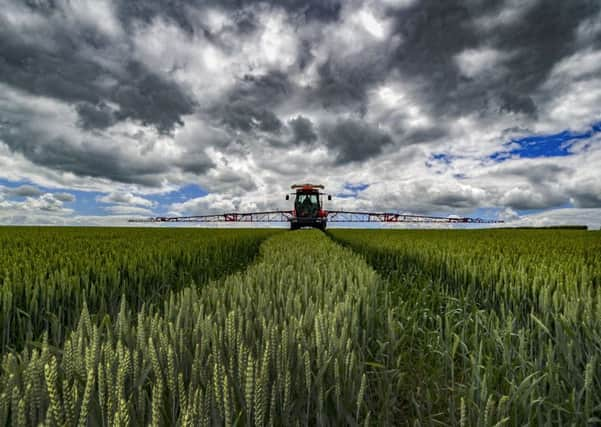GM wheat trial could offer solutions to crop's plateau


The GM field trials will begin at agricultural research station Rothamsted Research’s farm in Devon later this year after approval was granted by the Department for the Environment, Food and Rural Affairs.
Scientists hope the crop will produce higher yields during a two-year trial period.
Advertisement
Hide AdAdvertisement
Hide AdThe crop has been produced by Rothamsted researchers and colleagues at the universities of Essex and Lancaster.
Wheat provides about a fifth of the total calories consumed globally, however wheat yields have plateaued in recent years and it has been predicted that yield gains will not reach the level required to feed the world’s nine billion population predicted for 2050.
This new study is the first time that scientists have sought to increase wheat yields by improving the efficiency by which energy in the form of light is converted to wheat biomass.
Professor Christine Raines, principal investigator of the research project at Essex University, said: “To date photosynthesis has not been used to select for high yielding crops in conventional breeding programmes and represents an unexploited opportunity. But there is now evidence that improving the efficiency of photosynthesis by genetic modification is one of the promising approaches to achieve higher wheat yield potential.”
Advertisement
Hide AdAdvertisement
Hide AdDr Malcolm Hawkesford, lead scientist at Rothamsted for the trial, said: “This trial will be a significant step forward as we will be able to assess in ‘real environmental conditions’ the potential of these plants to produce more using the same resources and land area as their non-GM counterparts.
“These field trials are the only way to assess the viability of a solution that can bring economic benefits to farmers, returns to the UK tax payer from the long-term investment in this research, benefits to the UK economy as a whole and the environment in general.”
Farmers will welcome the research, according to Minette Batters, deputy president of the National Farmers’ Union.
She said: “Many feel frustrated at missing out on technology that their international peers have embraced and benefitted from for 20 years. With current wheat yields at a plateau and the ever-present challenge to protect crops from pests and disease we need to look at smarter options so British farmers can continue producing high quality crops.”
Advertisement
Hide AdAdvertisement
Hide AdFor the trial to win approval, a risk assessment was reviewed by the independent Advisory Committee on Releases to the Environment and a 48-day public consultation was carried out by Defra. Scientists also consulted with the public and special interest groups.